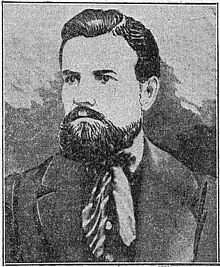Zéphyrin Camélinat

Zéphyrin Camélinat (variously spelled Zéphirin, Zéphyrenne; Mailly-la-Ville, Yonne, 1840 – Paris, 1932) was a French politician, writer, communard, socialist and communist.
Zéphyrin Rémy Camélinat was born into a poor peasant family and became a metal worker by trade. He was a friend of the anarchist writer and social critic P.-J. Proudhon. In 1864, Camélinat was one of the signatories of the 'Manifesto of the Sixty', together with Henri Tolain and other Proudhonists. It abandoned political abstentionism and called for elections of workers to the National Assembly, and for the establishment of economic as well as political democracy.
Camélinat was instrumental in organising the French section of the First International and recruited Benoît Malon, among others. In 1871 Camélinat participated in the Paris Commune, serving as its treasurer. After the suppression of the Commune, he fled to England, where he remained until a general amnesty enabled him to return to France in 1880. From 1885 to 1889 he was a Socialist deputy in the Chamber of Deputies. He was involved in the unification of the French Socialist party (SFIO) in 1905.
During the First World War, Camélinat moved increasingly to the left of the Socialist Party and came to oppose its pro-war stance. In 1920 he joined the new French Communist Party (PCF), serving as its candidate in the French predidential election of 1924.
References
- The Great Soviet Encyclopedia. Moscow, 1979.